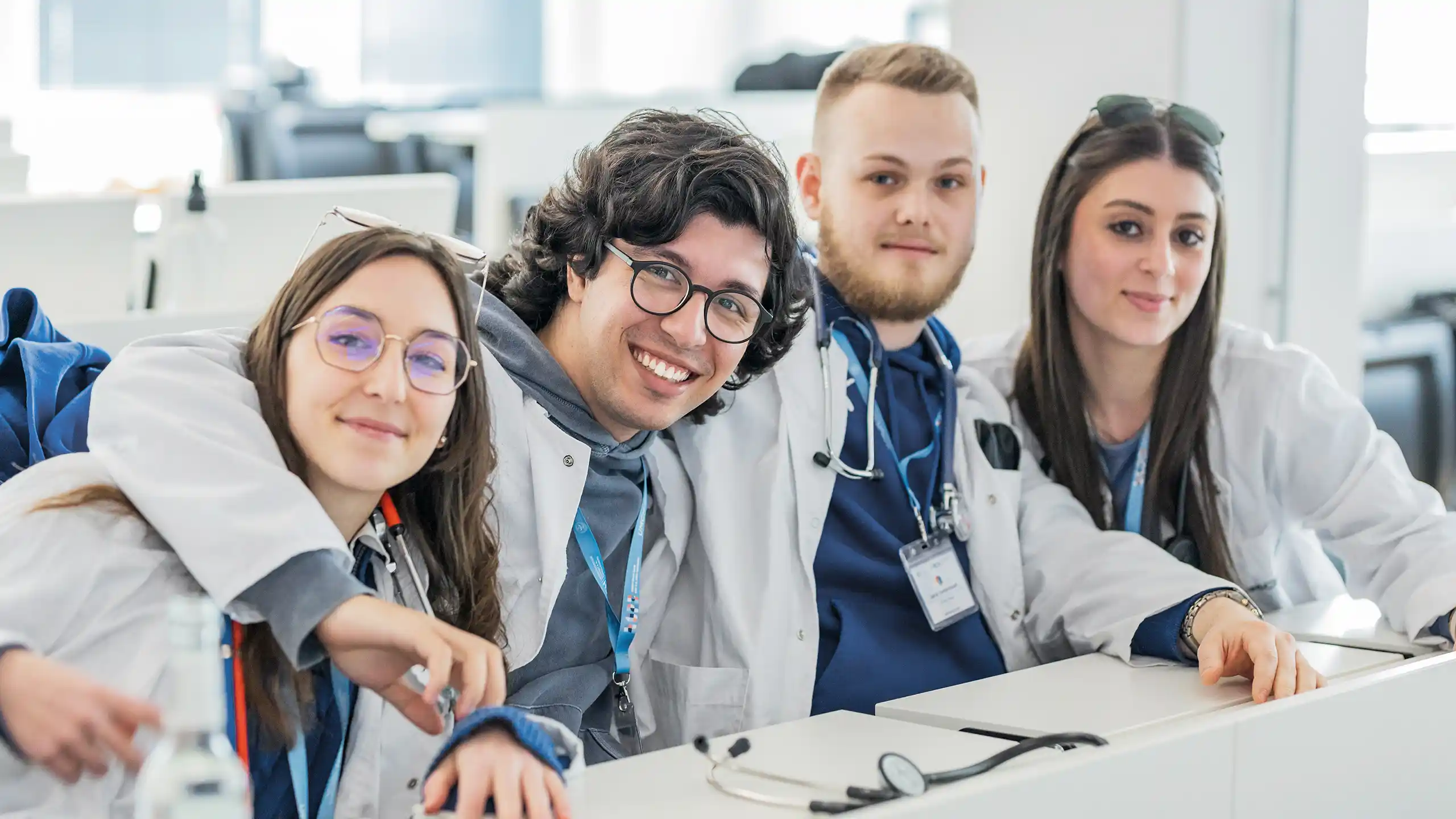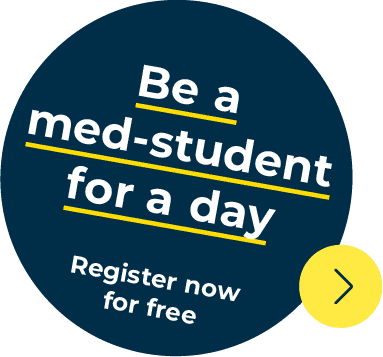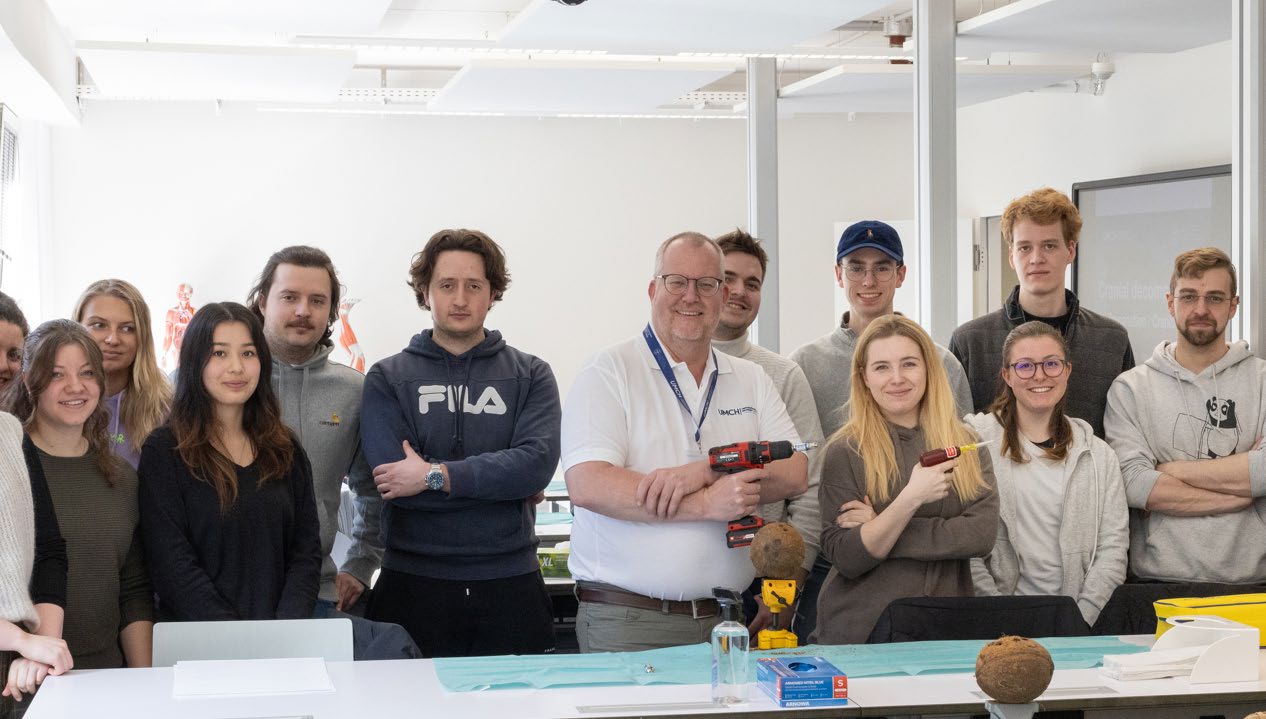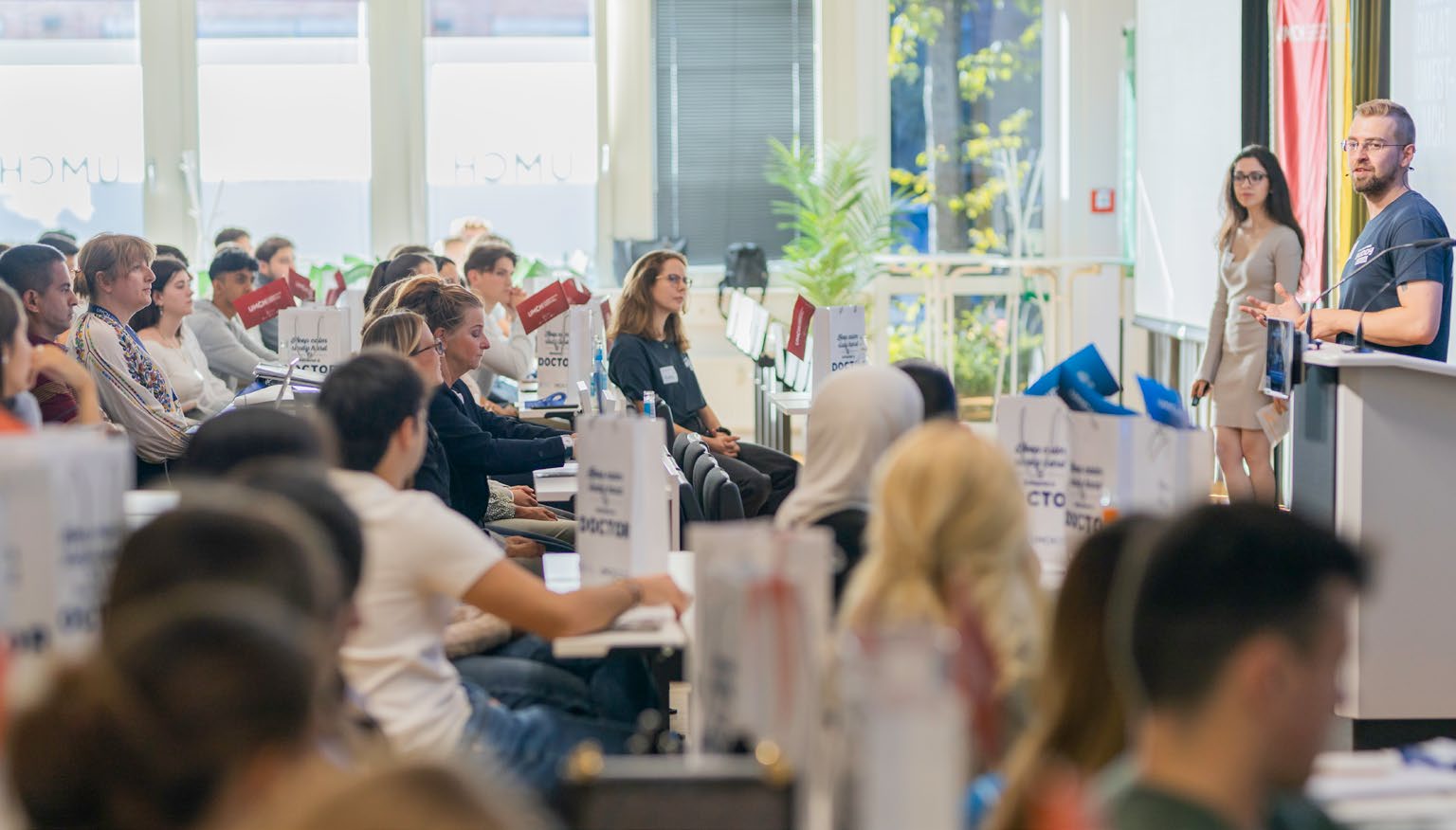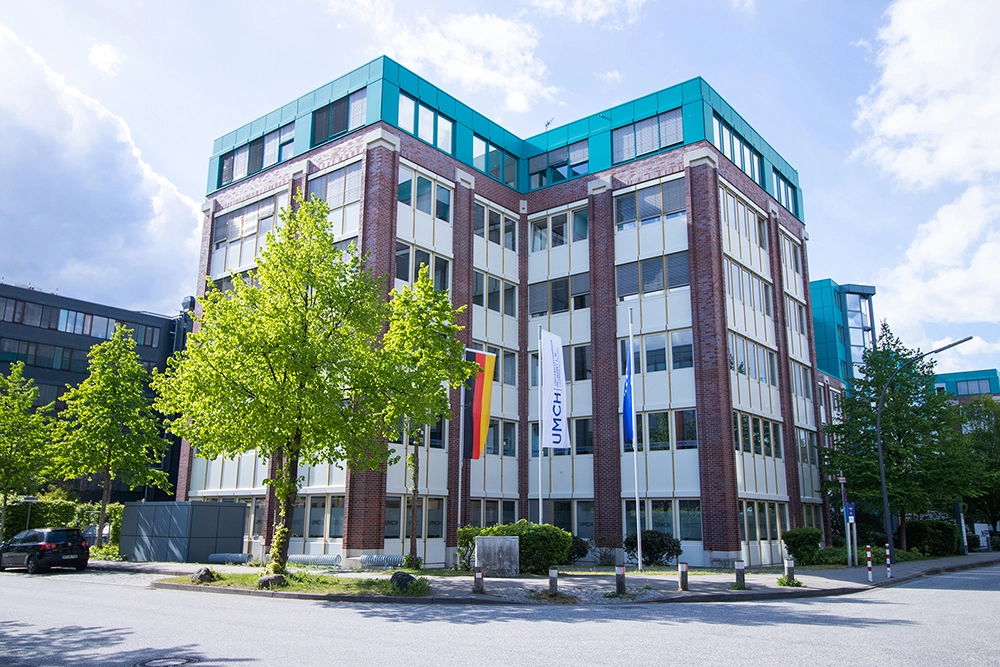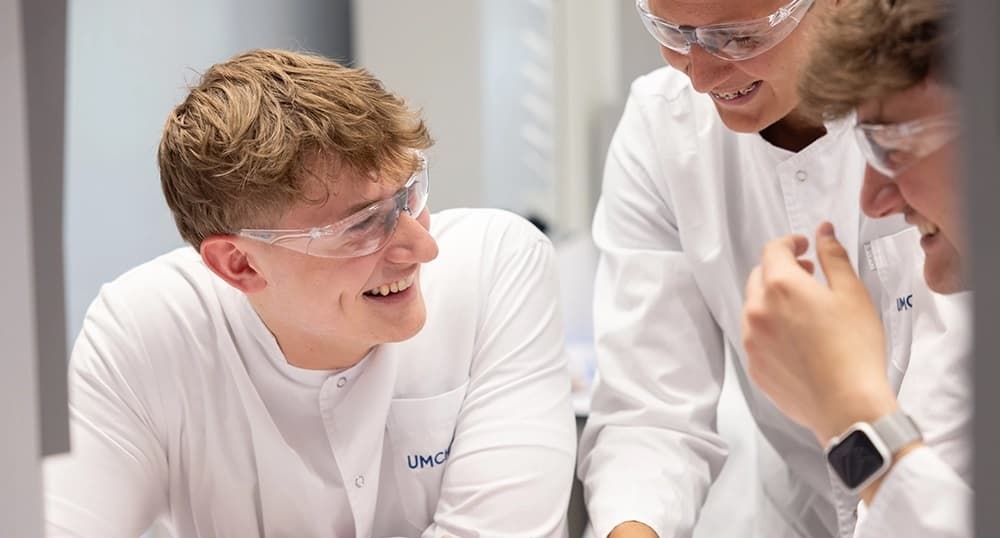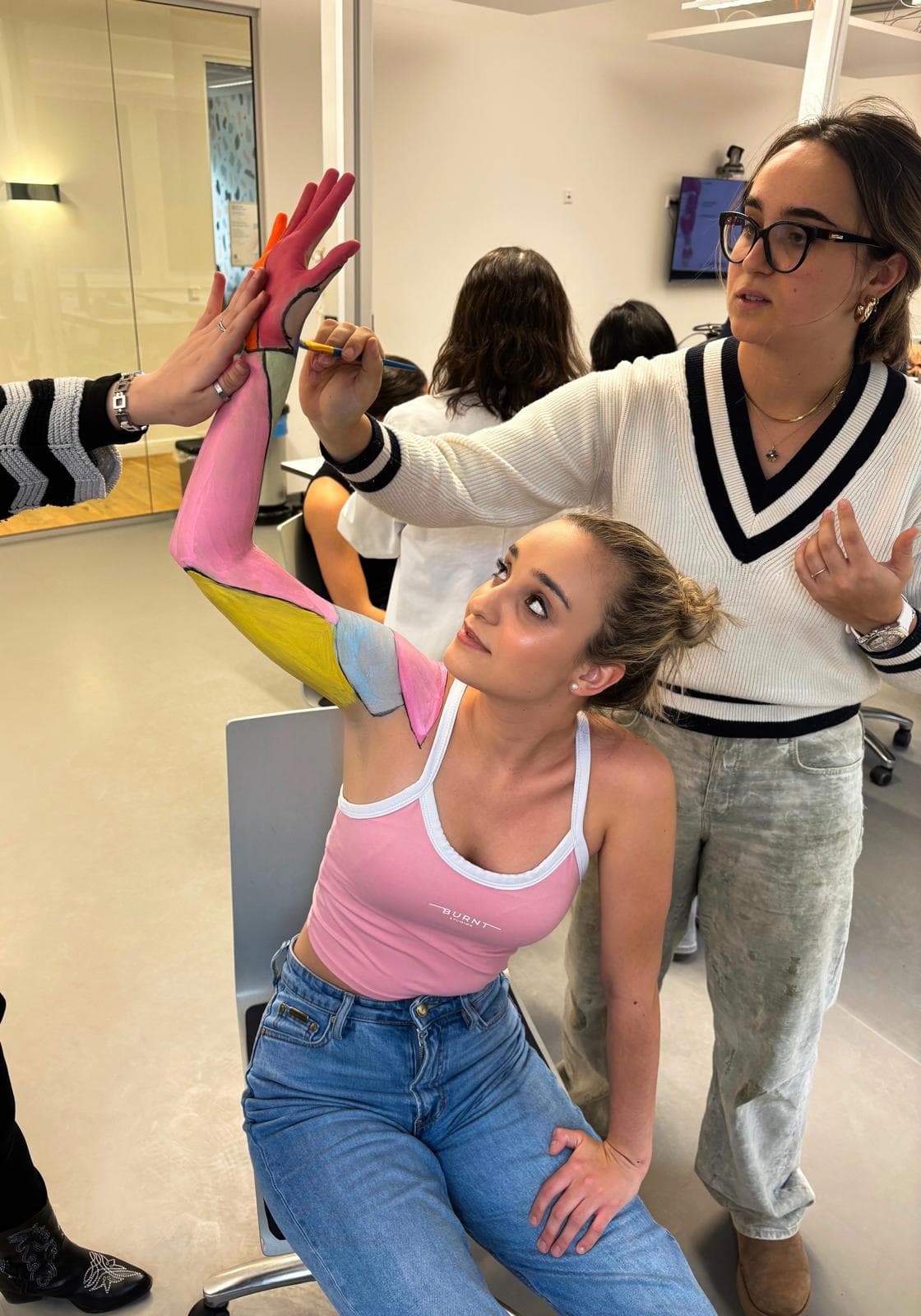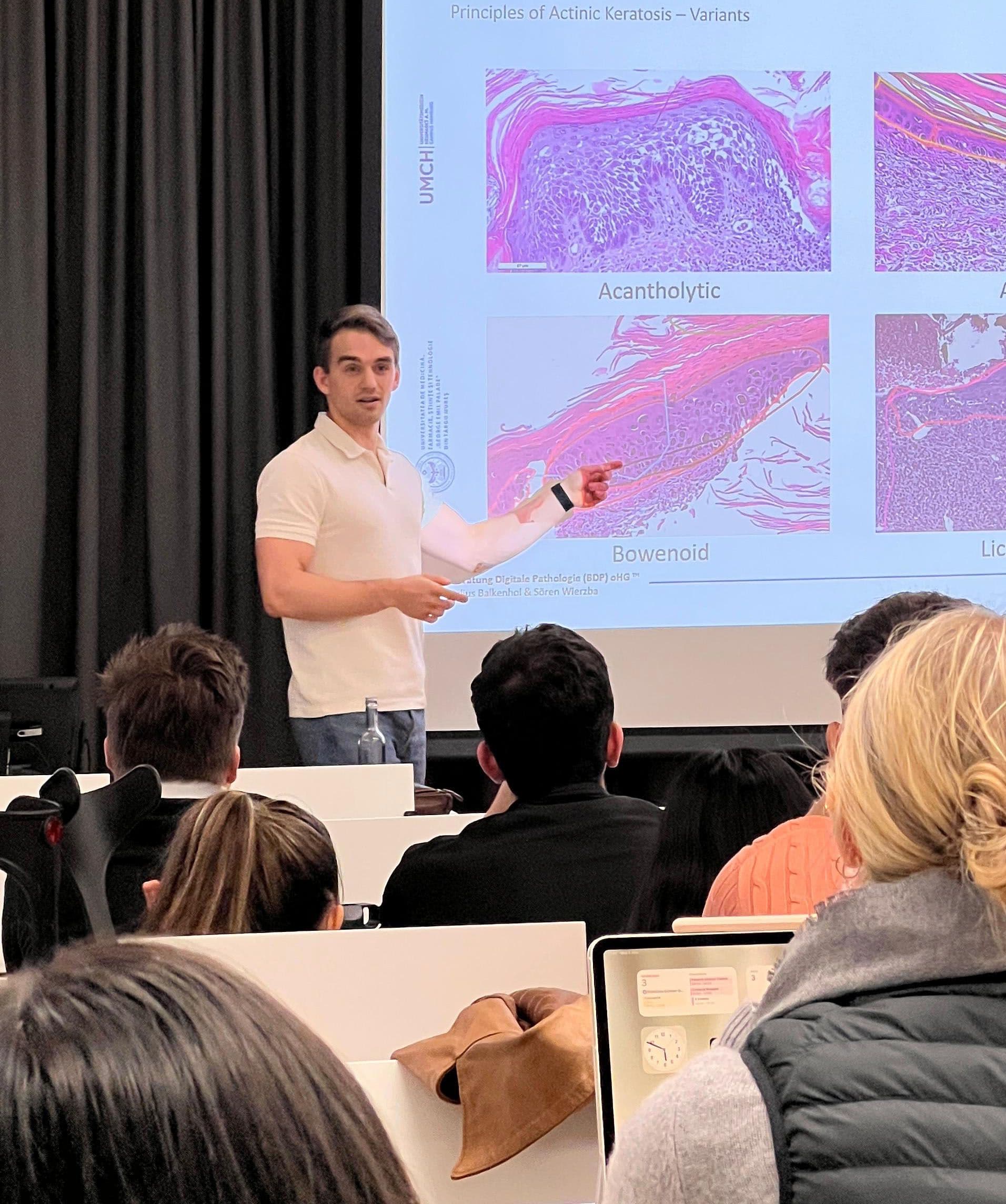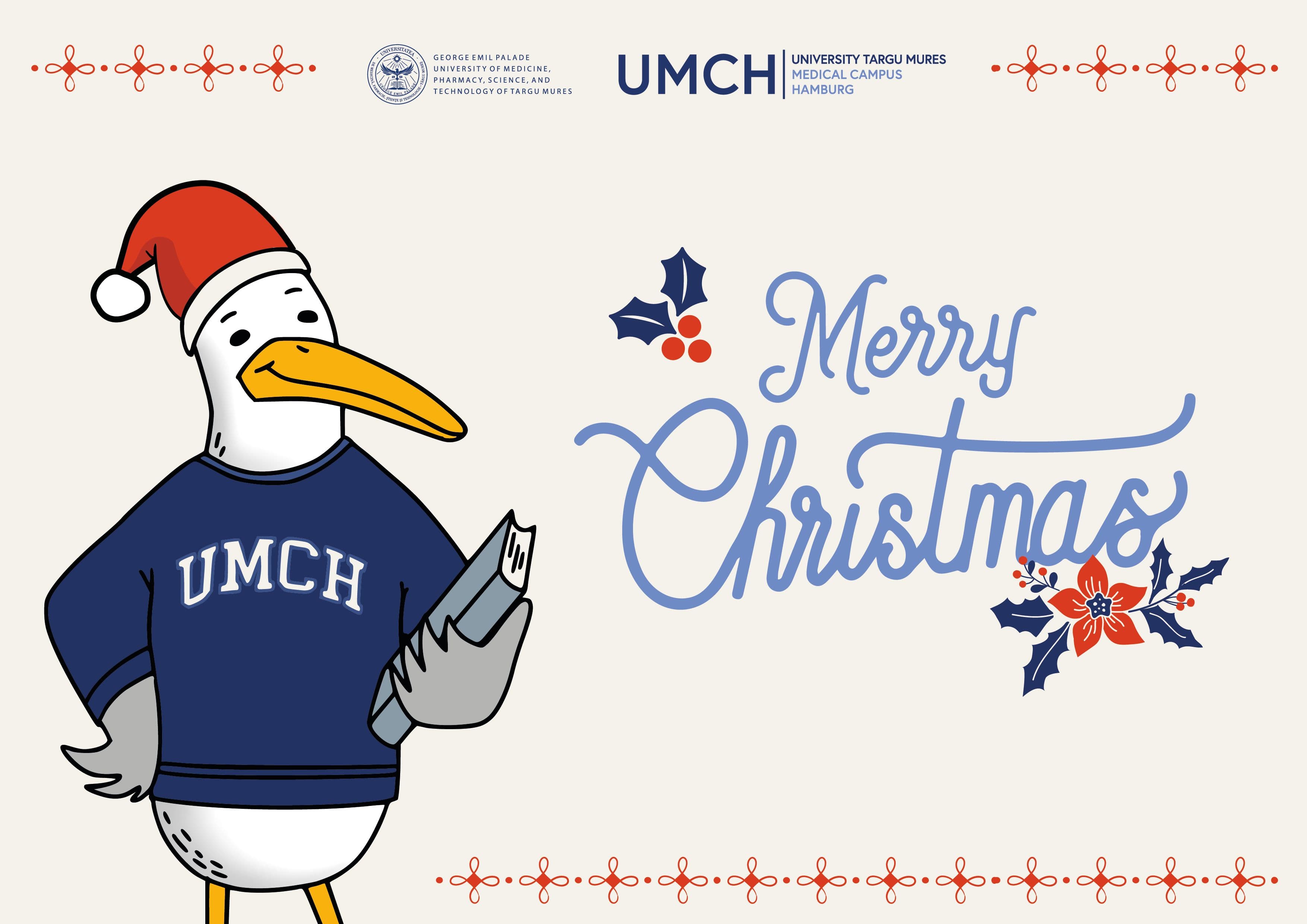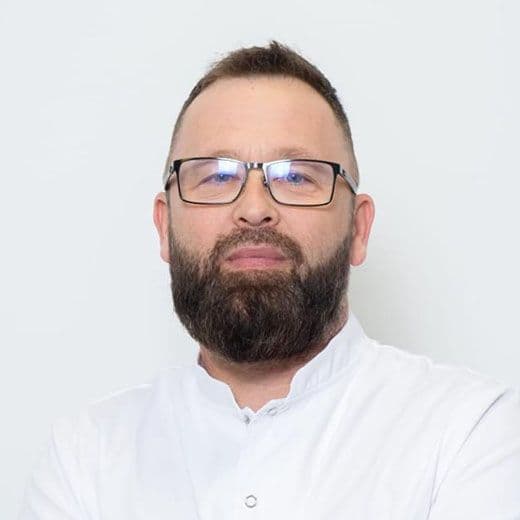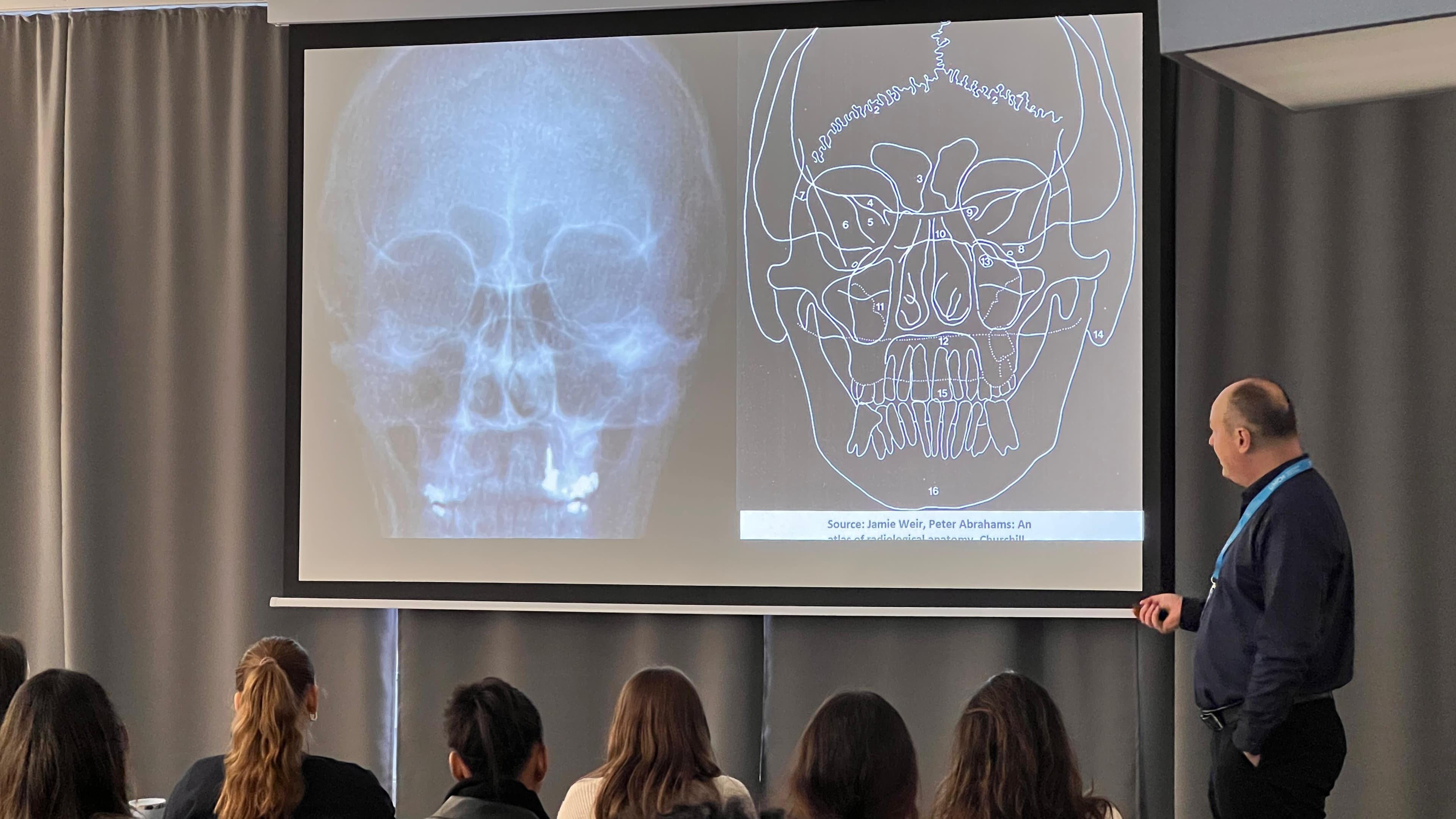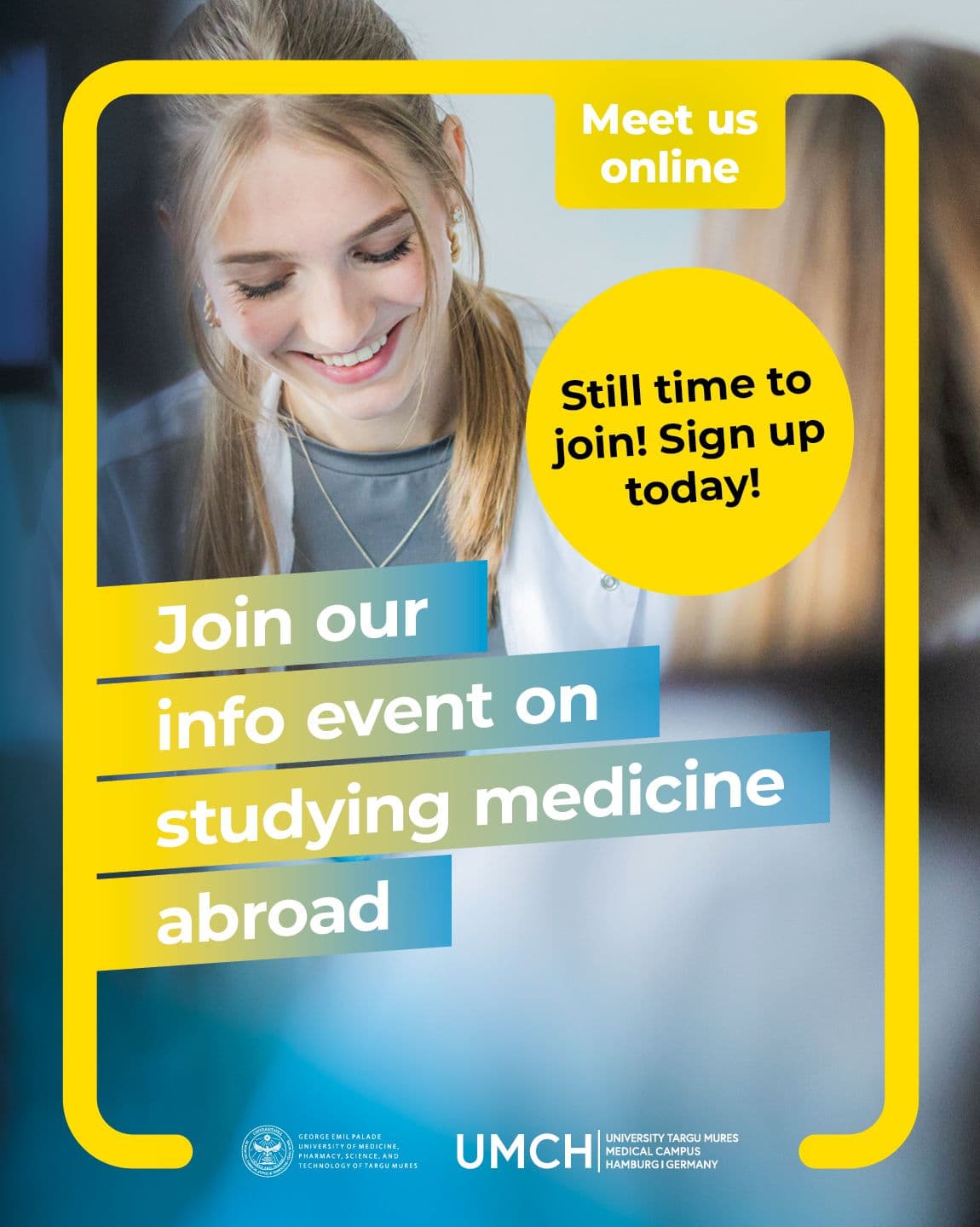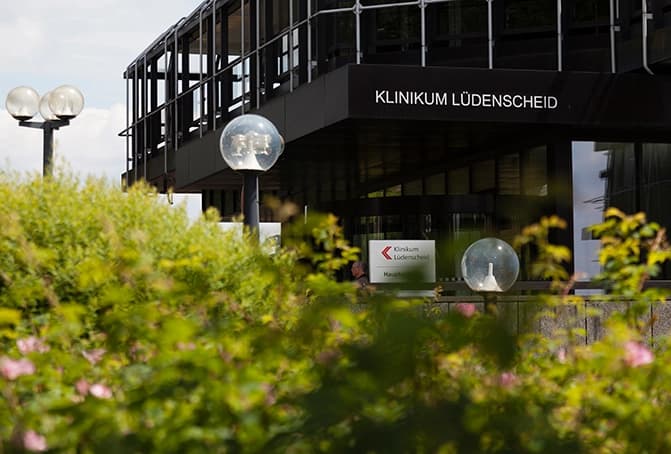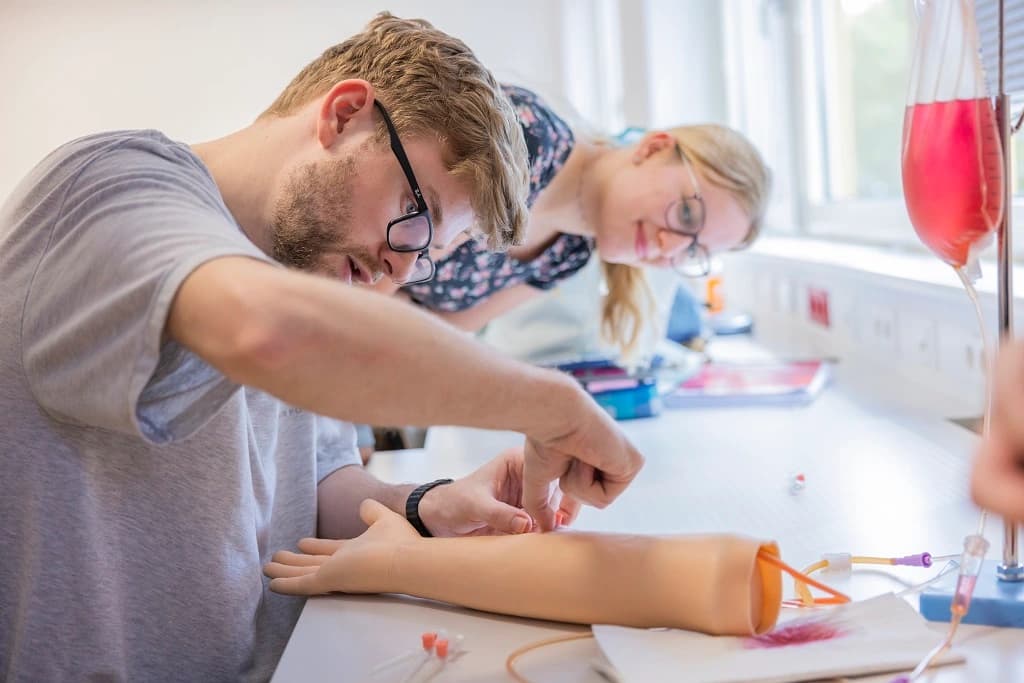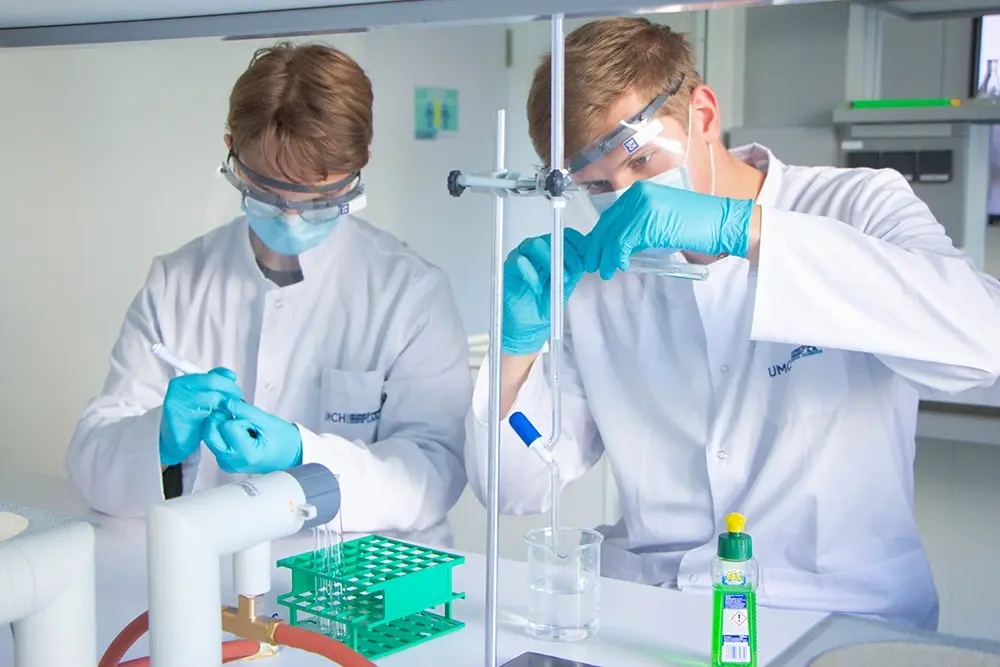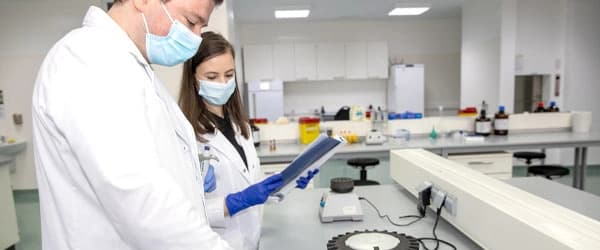UMFST-UMCH – Germany’s International English-Taught Medical Program in Hamburg Apply
Exclusive. Personal. Individual.

- 6-year medical degree program in English with an international campus flair
- Practice-oriented lessons in small groups
- Study in Germany. Act globally. Be part of a large community from over 40 nations
- Clinical-practical training in German and international teaching hospitals
- State-of-the-art and highly digital university campus in Hamburg
- Recognized in the EU, the United Kingdom, the USA, Switzerland, Norway, UAE, India and many other countries
- Qualification after graduation for USMLE, UK (no PLAB required), etc.
- Doctorate possible at G.E. Palade UMPhST of Targu Mures
- Strong in research, interdisciplinary, practice-oriented
This is how the online application process works at UMFST-UMCH
1.
Register via our online application portal.2.
Upload your application documents.3.
Motivation-Based Interview in English and Brief Evaluation – All Conveniently Online from Home
Your medical preparatory course in just 3 weeks or 3 months.
Your successful start to medical studies begins here. With our preparatory courses, you will acquire the fundamental knowledge to begin medical studies at UMFST-UMCH.


